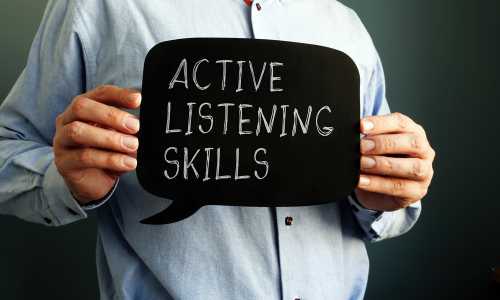What is Active Listening?
- Active listening is the practice of fully focusing on and comprehending what another person is saying, both verbally and non-verbally.
- It involves giving the speaker full attention, maintaining eye contact, and providing verbal and non-verbal cues to show understanding and interest.
- Active listening requires withholding judgment and refraining from interrupting the speaker.
- It involves asking clarifying questions and paraphrasing to ensure accurate understanding.
- Active listening fosters effective communication, empathy, and mutual respect in conversations and relationships.
Why is active listening and important skill to master?
Active listening is an important skill to master because of its numerous benefits and positive impacts on both personal and professional relationships. Here’s why active listening is crucial:
- Enhances Communication: Active listening fosters effective communication by ensuring that the speaker’s message is fully understood and acknowledged. This promotes clear and meaningful interactions.
- Builds Empathy: By attentively listening to others, we gain insight into their emotions, thoughts, and perspectives. This empathy strengthens connections and fosters mutual understanding.
- Strengthens Relationships: Active listening demonstrates respect and validation for the speaker, which leads to stronger and more trusting relationships.
- Resolves Conflicts: By actively listening to all parties involved, conflicts can be better understood and resolved in a constructive and empathetic manner.
- Improves Problem-Solving: Listening carefully helps gather crucial information and perspectives, leading to more informed and effective problem-solving.
- Enhances Leadership: Effective leaders are skilled listeners who understand the needs and concerns of their team members. This leads to better decision-making and team morale.
- Supports Personal Growth: Active listening allows individuals to receive constructive feedback and learn from others, promoting continuous personal development.
- Promotes Inclusivity: When people feel heard and understood, they are more likely to actively participate and contribute to discussions and decision-making processes.
- Boosts Productivity: By minimizing misunderstandings and miscommunications, active listening reduces errors and rework, leading to improved productivity.
- Enhances Customer Service: Active listening is essential in customer interactions, ensuring that their needs and concerns are addressed effectively.
Mastering active listening can lead to more fulfilling and harmonious relationships, improved collaboration, and overall success in various aspects of life.




